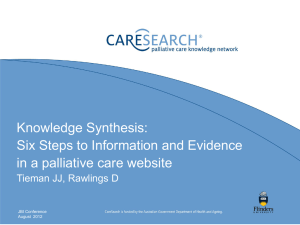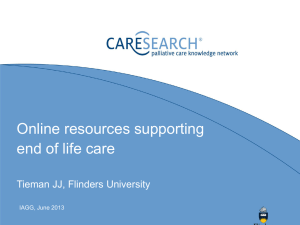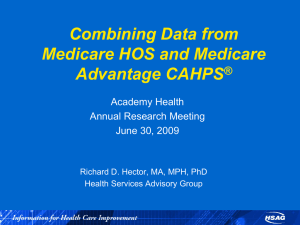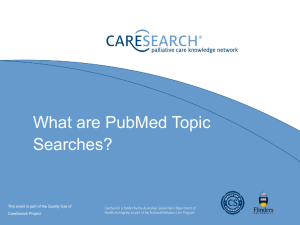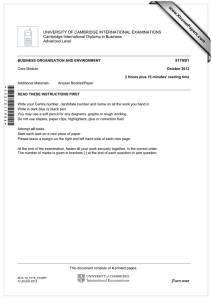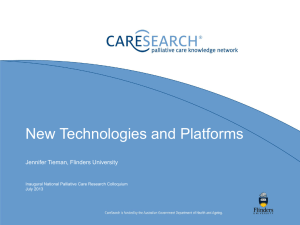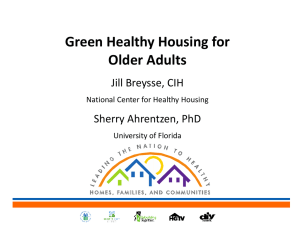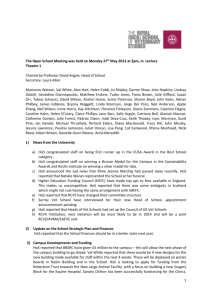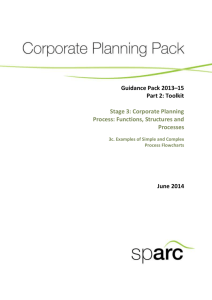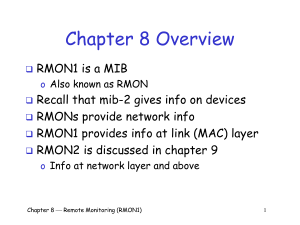Current Advance Directive Use in South Australia
advertisement
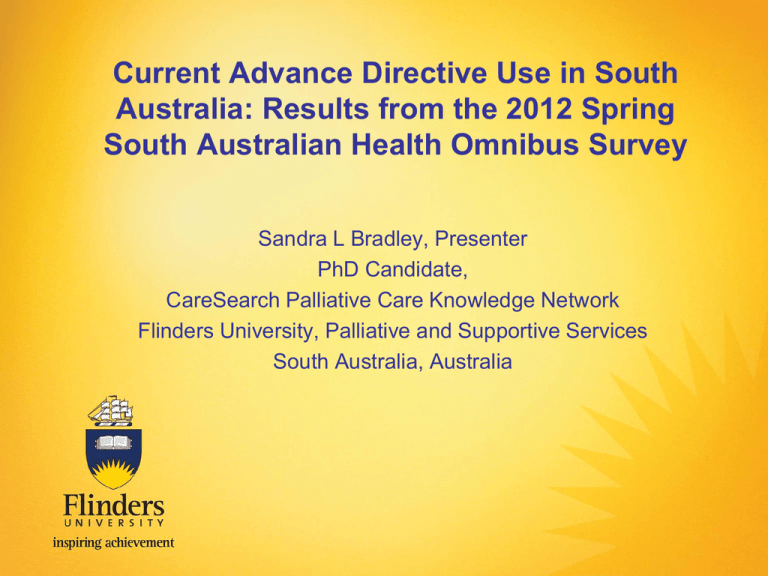
Current Advance Directive Use in South Australia: Results from the 2012 Spring South Australian Health Omnibus Survey Sandra L Bradley, Presenter PhD Candidate, CareSearch Palliative Care Knowledge Network Flinders University, Palliative and Supportive Services South Australia, Australia Thank You • CareSearch Palliative Care Knowledge Network for PhD scholarship and HOS survey funding • Supervisors: Associate Professor, Jennifer Tieman, Director of CareSearch Associate Professor, Richard Woodman Director of Epidemiology and Biostatistics Professor Paddy Phillips, Chief Medical Officer of South Australia Flinders University, Palliative and Supportive Services CareSearch is funded by the Australian Government Department of Health and Ageing 2 Background to Study • Continuation of Masters Degree topic which investigated the factors that influence South Australian Baby Boomers to either create or not create an advance directive. • The PhD investigates whether interventions in the online environment can facilitate advance directive completions by South Australian Baby Boomers and comprises 3 projects which inform each other. – Systematic Review on the effectiveness of online advance directives – Health Omnibus Survey (HOS) in South Australia to determine current prevalence rates of advance directive and computer use and comfort – Intervention study to test whether online knowledge and/or reminders can increase completion rates of advance directives in South Australian Baby Boomers. This presentation focuses on some of the data from the HOS survey (Ethics approval by Flinders University Social and Behavioural Research Ethics Committee) 3 Methodology of SA HOS • Data collected Sept – Dec 2012 • Metropolitan and Regional South Australia • Sample size 3055 respondents from 5200 households (66.4% response rate) • Data in this presentation weighted by person and household weights 4 HOS Survey Question 1 Have you completed any of the following forms for yourself? (multiple responses allowed) – – – – – Power of Attorney (for finances) Power of Guardianship (for healthcare and welfare) Will (for after you have died) Medical Power of Attorney (for healthcare) “Living Will” (advance care plan, statement of choices, life values statement, organ donation card or other) – None of the above – Don’t know/Refused to Answer 5 Overall Prevalence Rates for Q1 6 % Document Completion by Age Group – Q1 7 % of Document Completion by Age – Q1 Con’t 8 % of Document Completion by Age – Q1 Con’d 9 HOS Survey Question 2 Thinking about your family and friends, have you talked with someone or helped someone to complete any of the following forms?(multiple responses allowed) – – – – – Power of Attorney (for finances) Power of Guardianship (for healthcare and welfare) Will (for after you have died) Medical Power of Attorney (for healthcare) “Living Will” (advance care plan, statement of choices, life values statement, organ donation card or other) – None of the above – Don’t know/Refused to Answer 10 Overall Prevalence Rates for Q2 11 % Helped Someone by Age – Q2 12 % Helped Someone by Age – Q2 13 % Helped Someone by Age – Q2 14 HOS Survey Question 3 Using a Power of Attorney or Guardianship, have you ever had to make decisions for someone else? – Yes – No – Don’t know/Refused to Answer 15 Prevalence Rates for Q3 16 HOS Survey Question 4 I am not interested in learning about advance directives - Yes - No - Refused to Answer 17 Prevalence Rates for Learning More about ADs 18 Conclusion Results of this survey have identified: • More participants in this survey completed a Will than any other instrument • Of the true advance directives, more participants completed a Power of Attorney than the healthcare and value or choice instruments • The age group which most frequently assisted others with these documents was aged 45-64. • A low percentage of participants engaged in decisionmaking under a formal POA or POG • Majority of participants are interested in learning more about advance directives. 19 Some things we haven’t discussed • The affect of other sociodemographic characteristics on completion rates, e.g. gender, education, wealth, occupation, marital status • Which documents were completed singularly or together, e.g. POA + POG, POA only • The format that most people would prefer to learn about ADs, e.g. online, face-to-face, telephone or other 20
